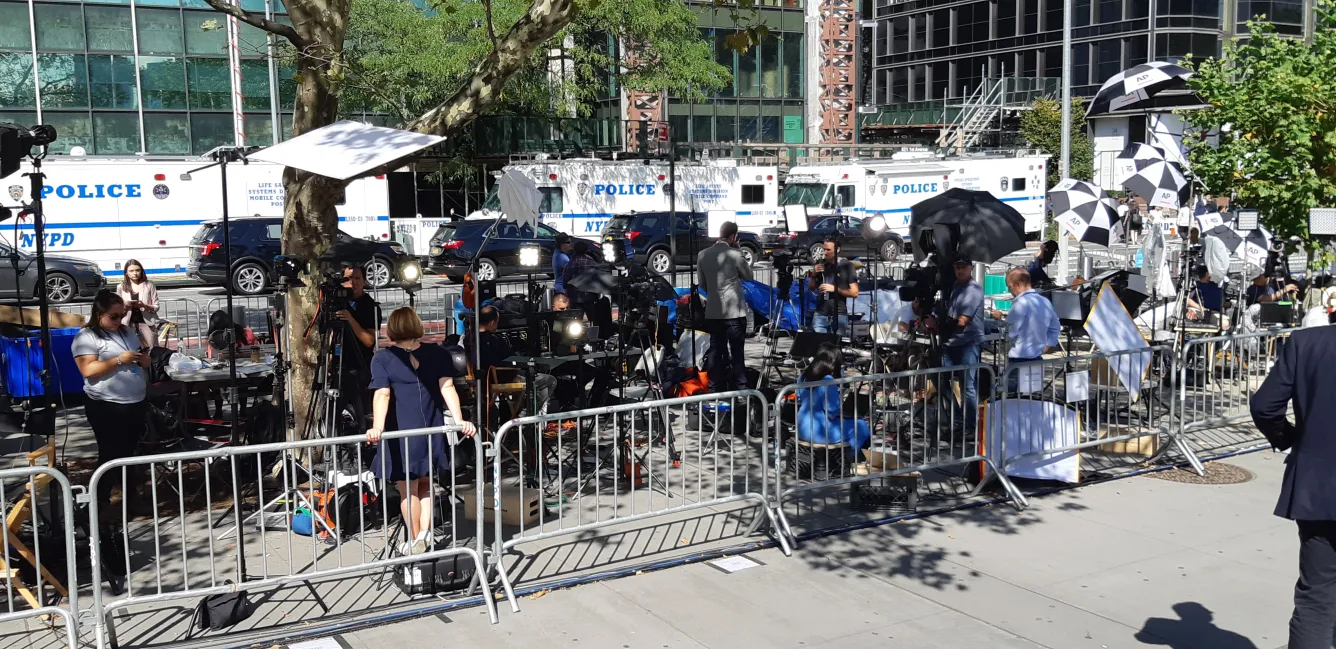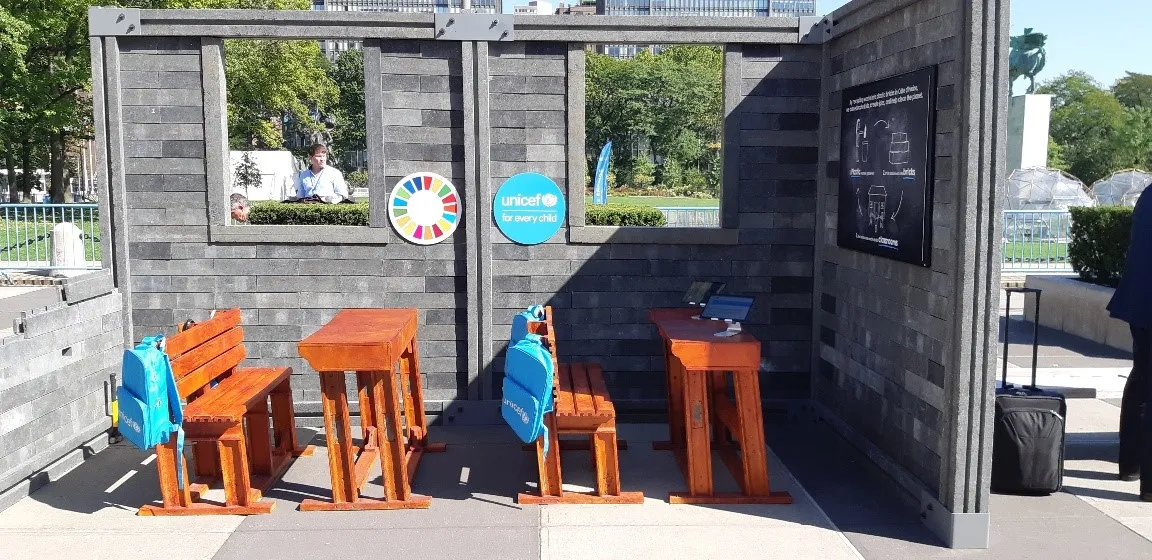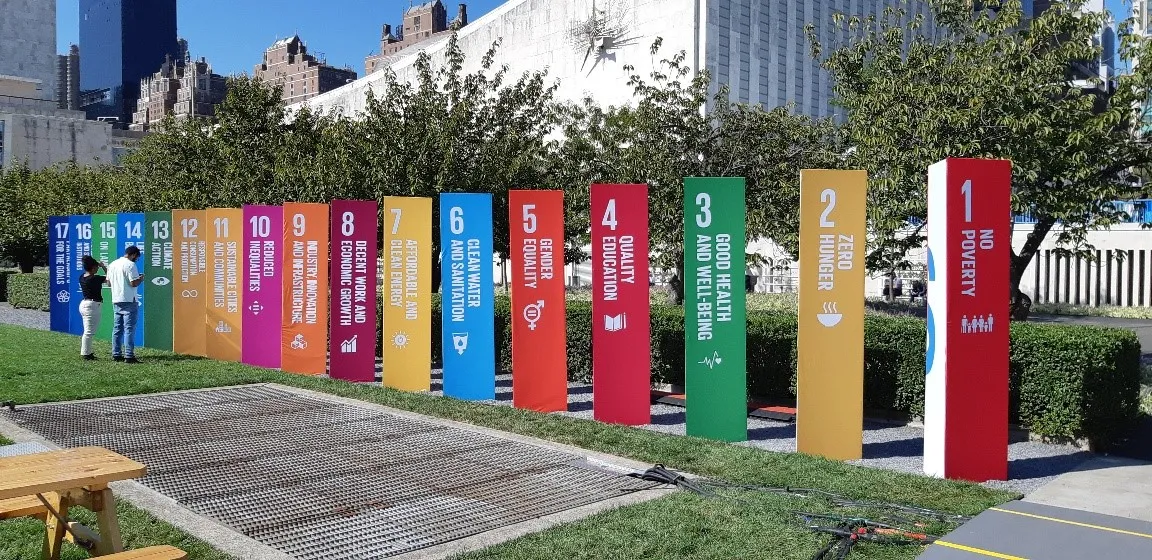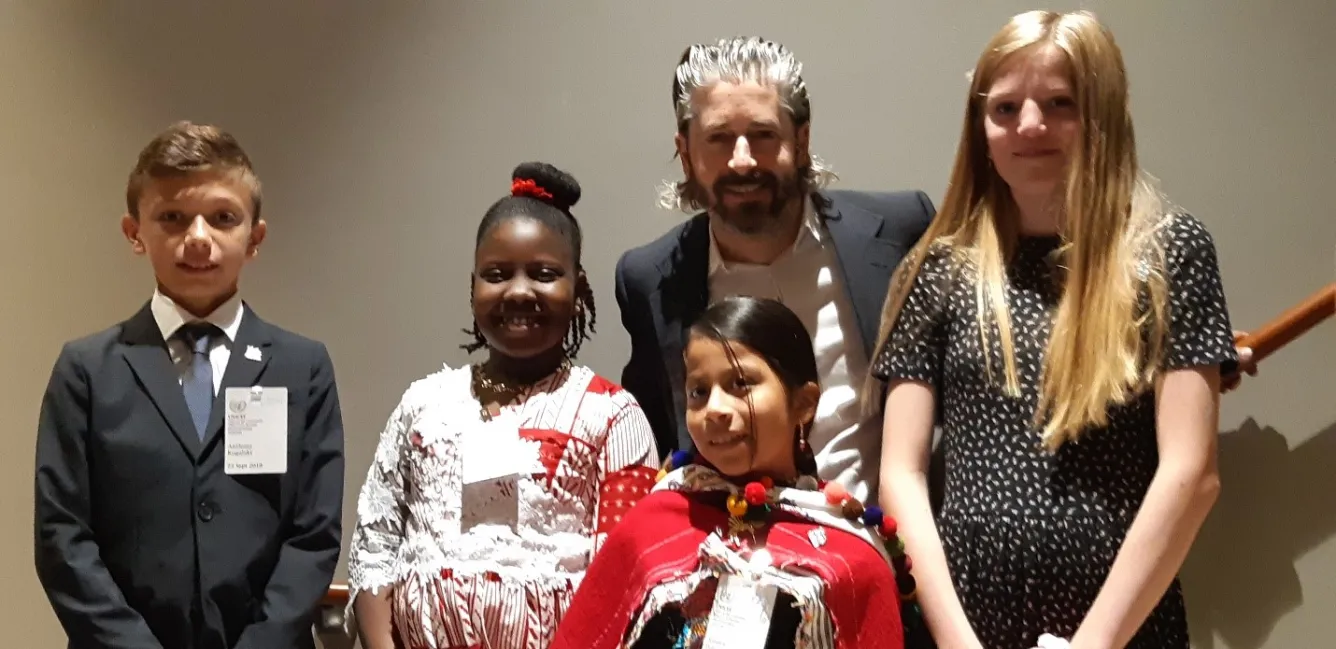The Convention on the Rights of the Child at 30: A Reflection
Our president and CEO David Morley was in New York City recently for the annual United Nations General Assembly (UNGA). While on the plane back to Toronto, he crafted this letter, about the impact being at the UNGA had on him and the work that we do as UNICEF Canada:
The UN – well, all of Manhattan, actually – buzzes when the General Assembly is on. “UN Week – Avoid Driving Your Car” say the signs on the way in from LaGuardia. Motorcades race endlessly, police cars and media vans jostle for space in the blocks in front on the UN Building.

Events happen throughout the week, and this morning it is a very special one - the celebration of the 30th Anniversary of the Convention on the Rights of the Child. Children and diplomats talk about the importance of the Convention and the history of its creation – from Janusz Korzack, the Polish educator and writer who died in a Concentration Camp and was one of the first to write about children’s rights; the Declaration on the Rights of the Child passed by the UN in 1959; the International Year of the Child in 1979, which began the impetus for turning the Declaration into a Human Rights treaty, and to 1989, when the Convention on the Rights of the Child was passed in the UN.
So much has changed for children in the thirty years since then, so much good has happened and, as is so often the case, we have forgotten all the hard work it took to bring about these positive changes.
But it is good to remember the progress we have made. The number of children who die before the age of 5 has been cut in half since the Convention was signed. Malnourishment for children – with the devastating life-long effects of stunting– has also been cut by 50%. More children are in school than ever before in human history, in both primary and secondary school. The Convention on the Rights of the Child was the document which galvanized and focused so much of this action. Its importance as a tool to bring about this change cannot be overstated.

We forget, I think, how hard it was to meet those challenges. We forget how far we have come in the struggle for children’s rights – but we must not forget how far we have to go.
Those basics of childhood – surviving, learning, thriving, becoming, and belonging – are still out of reach for far too many children. And the robust economic system which helped stoke this progress – and its prospect for greater progress in the future – is at risk. Income inequality and the environmental crisis – two trends not contemplated 30 years ago – both put child well-being at risk.
And that’s not all –the internet, which was just starting to grow beyond a research tool for academics in 1989, has led to information technology which both gives children access to education and learning like never before as well as a new and powerful voice, but also poses new threats to safety and mental health. And more children are on the move today than at any other time since World War II – how will they learn? How can they be protected from violence and exploitation? Where will they find a home?

The Convention on the Rights of the Child should be celebrated as it was here at the UN today. No other UN document has changed as many lives as it has. It is our honour and responsibility – since UNICEF is the only agency named in the Convention - to uphold this treaty, to promote it, and to make sure its words are more than words, that they lead to actions for the children of the world.
We need the sentiments of this treaty to survive in an era when nationalism, not internationalism, is on the rise, when the idealism of “globalists” is derided by politicians from many of those countries whose cooperation and leadership laid the very foundations for the peace and prosperity we have enjoyed since UNICEF began in the ashes of World War II.

We do not know the challenges children will be facing 30 years from now, just as the writers of the Convention could not have foreseen the world we live in today. But as we move forward we must keep true to the values in the Convention, and work to make a more just world, a world of equality of opportunity, a world of peace, for every child.
